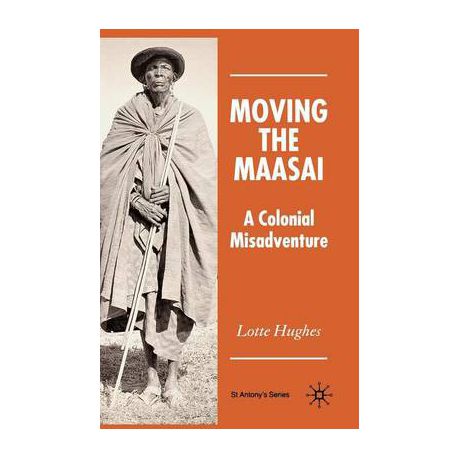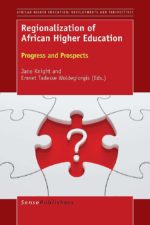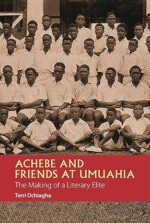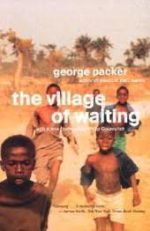This is the scandalous story of how the Maasai people of Kenya lost the best part of their land to the British in the 1900s. Drawing upon unique oral testimony and extensive archival research, Hughes describes the intrigues surrounding two enforced moves and the 1913 lawsuit, while explaining why recent events have brought the story full circle.
- You cannot add that amount to the cart — we have 1 in stock and you already have 1 in your cart. View cart
Moving the Maasai: A Colonial Misadventure (St Antony’s Series) 1st ed. 2006 Edition
KSh 15,260.00
1 in stock
| SKU: | 9781349545483 |
|---|---|
| Categories: | African Interest, History books |
| Author | L. Hughes |
|---|
Related products
-
Regionalization of African Higher Education -progress and prospects
KSh 6,720.00Regionalization of higher education in Africa is the least researched topic in the field of Social Science. In this regard, this book is a pioneer in terms of exploring both the historical and theoretical dynamics of regionalization processes within Africa. This book raises fundamental questions that focus on context and formation, operationalization and implications, and challenges and prospects of these regionalization processes. In doing so, it gives both the analytical contexts of the evolution of higher education regionalization and the current initiatives by the African Union. Dissertation. (Series: Contributions to African Research / Beitr�¤ge zur Afrikaforschung, Vol. 73) [Subject: African Studies, Higher Education]
-
Sexuality and Gender Politics in Mozambique: Re-Thinking Gender in Africa
KSh 1,499.00Demonstrates shortcomings in Western feminist conceptualizations, and shows how insights from African feminist thinking may enhance understandings of gender, both in and beyond Africa.
Winner of the 2012 gender research award KRAKA-prisen.
This book is about gender politics in Mozambique over three decades from 1975 to 2005. The book is also about different ways of understanding gender and sexuality. Gender policies from Portuguese colonialism, through Frelimo socialism to later neo-liberal economic regimes share certain basic assumptions about men, women and gender relations. But to what extent do such assumptions fit the ways in which rural Mozambican men and women see themselves? A major line of argument in the book is that gender relations should be investigated, not assumed, and that policies not matching people’s lives are not likely to succeed.
The empirical data, on which the argument is based, are first a unique body of data material collected 1982-1984 by the national women’s organization, the OMM [when the author was employed as a sociologist in the organization] andsecondly data resulting from more recent fieldwork in northern Mozambique.
Importantly inspired by African post-colonial feminist lines of thinking, the book engages in a project of re-mapping and re-interpreting ‘culture andtradition’. In this context, the book investigates in particular matriliny [c. 40 per cent of Mozambique’s population live under conditions of matriliny] and female initiation. The findings open new avenues for gender politics, and for rethinking sexuality and gender – in Africa and beyond. -
Einstein His Life & Universe By: Walter Isaacson
KSh 1,695.00Einstein was a rebel and nonconformist from boyhood days, and these character traits drove both his life and his science. In this narrative, Walter Isaacson explains how his mind worked and the mysteries of the universe that he discovered.
-
Achebe and Friends at Umuahia
KSh 17,290.00WINNER OF THE ASAUK FAGE & OLIVER PRIZE 2016 This is the first in-depth scholarly study of the literary awakening of the young intellectuals who became known as Nigeria’s “first-generation” writers in the post-colonialperiod. Terri Ochiagha’s research focuses on Chinua Achebe, Elechi Amadi, Chike Momah, Christopher Okigbo and Chukwuemeka Ike, and also discusses the experiences of Gabriel Okara, Ken Saro-Wiwa and I.C. Aniebo, in the context of their education in the 1930s, 1940s and 1950s at Government College, Umuahia. The author provides fresh perspectives on Postcolonial and World literary processes, colonial education in British Africa, literary representations of colonialism and Chinua Achebe’s seminal position in African literature. She demonstrates how each of the writers used this very particular education to shape their own visions of the world in which they operated and examines the implications that this had for African literature as a whole. Supplementary material is available online of some of the original sources. See: http://boybrew.co/9781847011091_2 Terri Ochiagha holds one of the prestigious British Academy Newton International Fellowships (2014-16) hosted by the School of English, University of Sussex. She was previously a Senior Associate Member of St Antony’s College, University of Oxford.
-
River God (The Egyptian Novels)
KSh 400.00Ancient Egypt. Land of the Pharaohs. A kingdom built on gold. A legend shattered by greed…. Now the Valley of Kings lies ravaged by war, drained of its lifeblood, as weak men inherit the cherished crown. For Tanus, the fair-haired young lion of a warrior, the gods have decreed that he will lead Egypt’s army in a bold attempt to reunite the Kingdom’s shattered halves. But Tanus will have to defy the same gods to attain the reward they have forbidden him, an object more prized than battle’s glory: possession of the Lady Lostris, a rare beauty with skin the color of oiled cedar – destined for the adoration of a nation, and the love of one extraordinary man.
KSh 650.00 -
The Village of Waiting
KSh 995.00Now restored to print with a new Foreword by Philip Gourevitch and an Afterword by the author, The Village of Waiting is a frank, moving, and vivid account of contemporary life in West Africa. Stationed as a Peace Corps instructor in the village of Lavié (the name means “wait a little more”) in tiny and underdeveloped Togo, George Packer reveals his own schooling at the hands of an unforgettable array of townspeople―peasants, chiefs, charlatans, children, market women, cripples, crazies, and those who, having lost or given up much of their traditional identity and fastened their hopes on “development,” find themselves trapped between the familiar repetitions of rural life and the chafing monotony of waiting for change.
-
Partnership in Higher Education -African Higher Education: Developments and Perspectives
KSh 6,000.00Trends in institutional partnership in higher education have shown tremendous growth in the past three decades. These trends are manifested through the growing initiatives of joint programs that promote collaborative research, academic mobility, joint curriculum development and course delivery, joint bidding for development projects and bench marking. Partnerships in higher education have been used not only as an instrument for institutional development through a wide range of strategic alliances but also as an essential way of introducing new voices to the operations of the universities by initiating new paradigms that bring new perspectives and bear competitive advantage on the partners. As the trend of partnership in higher education grew, scholars in higher education studies have also engaged in conceptualising higher education partnership from academic perspectives, analysing trends and developing models of higher education collaborations.
-
Artisanal Fishers on the Kenyan Coast- Household Livelihoods and Marine Resource Management
KSh 1,200.00Overexploitation of natural resources is often associated with poverty among local populations. A multi-disciplinary team studied artisanal fishers along the Kenyan coast on the Indian Ocean. The main focus of the research was on income diversification of fishers, the pressure on marine resources and the relation between the two. Income diversification did not reduce the pressure on the marine environment. Rather, indications are that many part-time fishers are entering the profession. Moreover, fishers with alternative employment stayed in-shore and used damaging gear more often. Policies to stimulate employment opportunities for coastal communities cannot be expected to lessen the pressure on marine resources and need to be planned carefully in terms of industry location, labour requirements and degree of coastal pollution.










Be the first to review “Moving the Maasai: A Colonial Misadventure (St Antony’s Series) 1st ed. 2006 Edition”